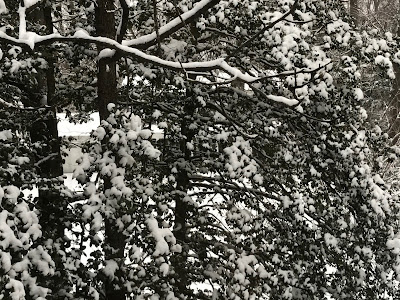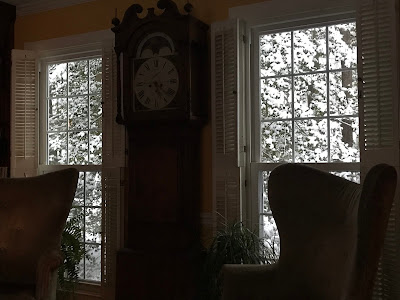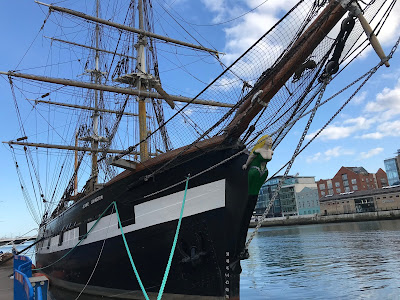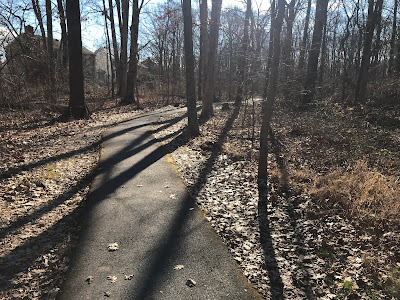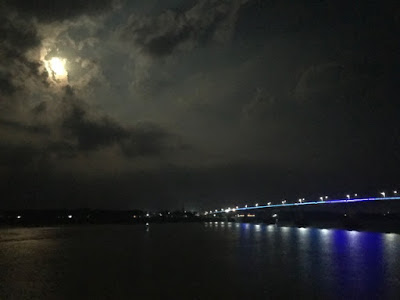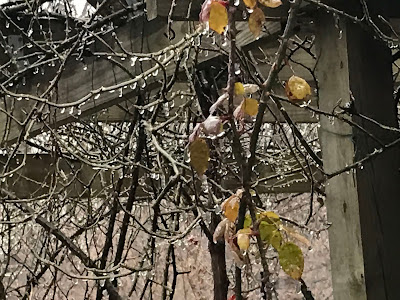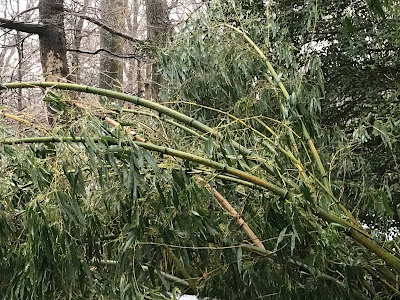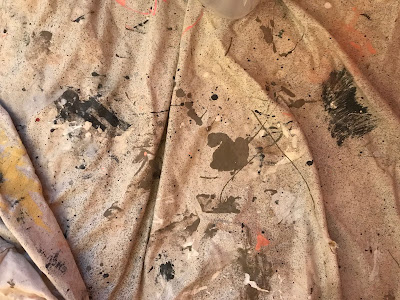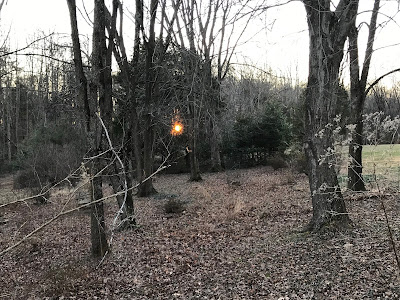Snowscape
The snowy Sunday quietly and steadily remained a snowy Monday, and has now — wonder of wonders! — become a snowy Tuesday.
As I write, the flurries that made it difficult to keep a path clean for Copper down the deck stairs (he’s old and slips a lot) have continued flying. The railing I scraped off yesterday has at least another inch or two of white coating.
Best of all, the winter wonderland brought to us by 28 degrees and enough cold aloft to produce these flakes still falling remains a vision, a snowscape, a sight for sore eyes.
